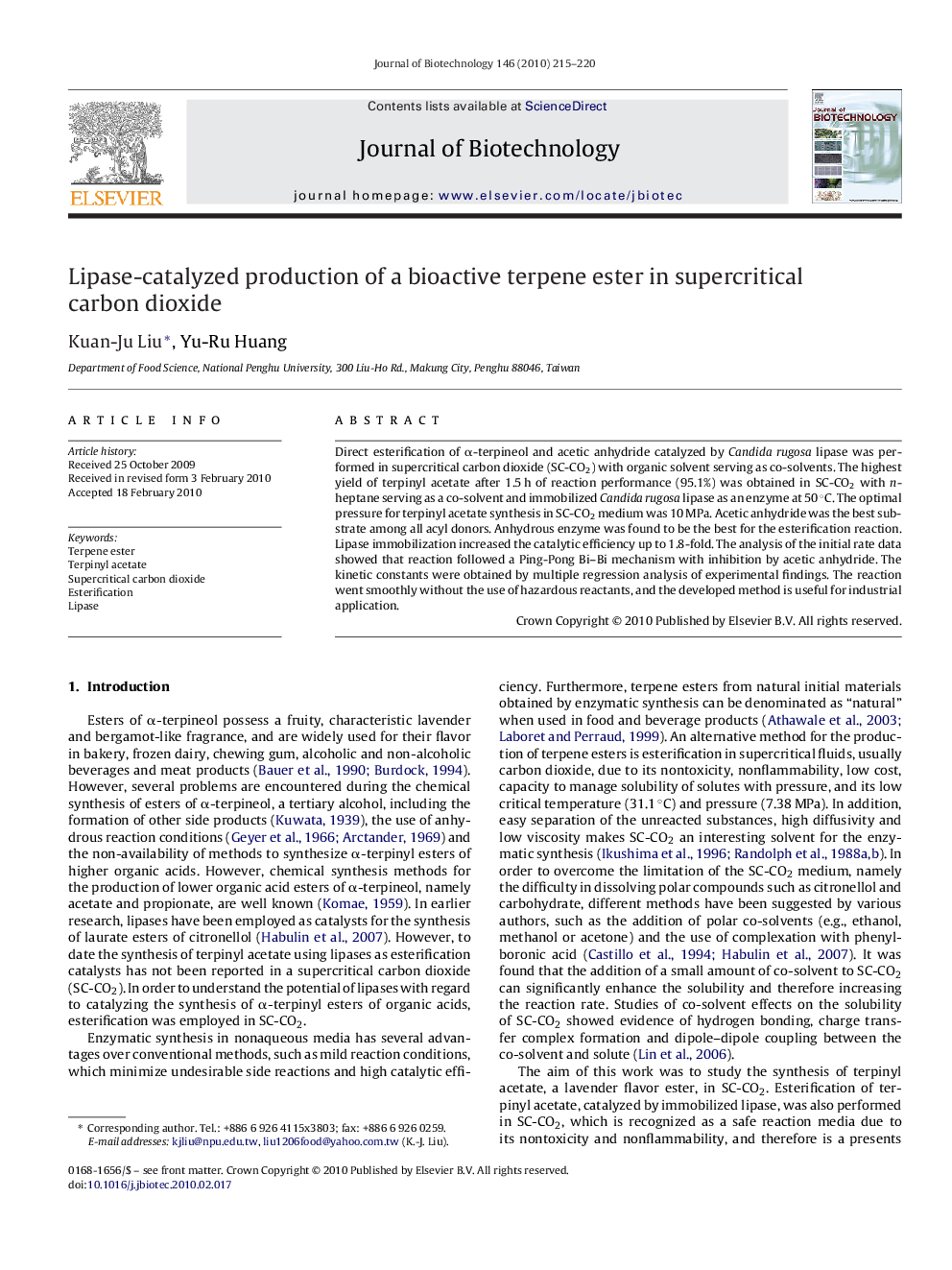| Article ID | Journal | Published Year | Pages | File Type |
|---|---|---|---|---|
| 24392 | Journal of Biotechnology | 2010 | 6 Pages |
Direct esterification of α-terpineol and acetic anhydride catalyzed by Candida rugosa lipase was performed in supercritical carbon dioxide (SC-CO2) with organic solvent serving as co-solvents. The highest yield of terpinyl acetate after 1.5 h of reaction performance (95.1%) was obtained in SC-CO2 with n-heptane serving as a co-solvent and immobilized Candida rugosa lipase as an enzyme at 50 °C. The optimal pressure for terpinyl acetate synthesis in SC-CO2 medium was 10 MPa. Acetic anhydride was the best substrate among all acyl donors. Anhydrous enzyme was found to be the best for the esterification reaction. Lipase immobilization increased the catalytic efficiency up to 1.8-fold. The analysis of the initial rate data showed that reaction followed a Ping-Pong Bi–Bi mechanism with inhibition by acetic anhydride. The kinetic constants were obtained by multiple regression analysis of experimental findings. The reaction went smoothly without the use of hazardous reactants, and the developed method is useful for industrial application.
